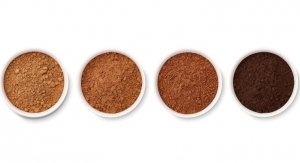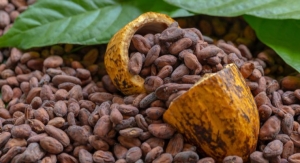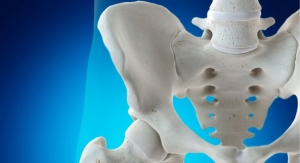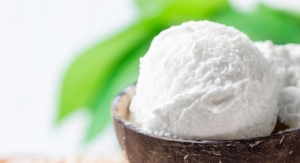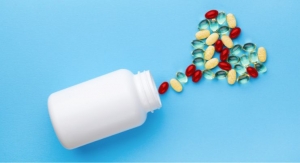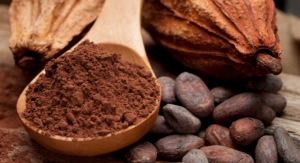Joanna Cosgrove, Online Editor10.25.12
Next week, children (and many grownups) will revel in one of the year’s biggest chocolate holidays, Halloween. Much to the delight of chocolate lovers of all sizes, mounting research has continued to show that when consumed in moderation, chocolate can offer a variety of health benefits. Two recently published reviews have added to that growing volume of evidence, this time citing cocoa’s ability to improve blood vessel health and thwart diabetes risk factors.
In the first review, published in the Journal of Nutrition, lead researcher and Harvard epidemiologist and nutritionist Eric Ding, PhD, found consumption of flavonoid-rich cocoa was linked to reductions in risk factors for diabetes, a major contributor to cardiovascular disease. Resistance to the hormone insulin, which helps regulate blood sugar, favorably dropped among people who consumed cocoa compared to controls.
A growing body of evidence suggests that the consumption of foods rich in polyphenolic compounds, particularly cocoa, may have cardio-protective effects. No review, however, has yet examined the effect of flavonoid-rich cocoa (FRC) on all major cardiovascular risk factors or has examined potential dose-response relationships for these effects. A systematic review and meta-analysis of randomized, controlled trials was performed to evaluate the effect of FRC on cardiovascular risk factors and to assess a dose-response relationship.
“Diabetics are insulin resistant, which means their body’s cells grow deaf and unresponsive to this vitally important hormone,” said Dr. Ding. “Our research found that high-flavanol cocoa both lowers insulin and insulin resistance—thereby improving sensitivity. The body gets better at pulling dangerous sugar out of the blood stream quicker, which is good for fighting against diabetes.”
Dr. Ding’s research and another Harvard study published in the spring of 2012 together lent credence to cocoa’s ability to counter the effects of obesity connected to insulin resistance. “High flavanol cocoa improves blood flow via endothelial function (as measured by improved flow-mediated dilation)—which benefits the entire body,” he explained. “Good circulation is the key to heart and brain health, and diabetes risk is increased by poor endothelial blood flow.
“Diabetes prevention is also key to preventing kidney problems, blindness and related nerve damage—all major side effects of diabetes,” he continued. “Interestingly, erectile dysfunction is also fundamentally a circulation problem—Viagra is also shown to improve flow-mediated dilation, similar to cocoa.”
The second review, published in Cochrane Database of Systematic Reviews, also focused on cocoa flavonoids, this time to determine the effect of flavanol-rich chocolate on blood pressure in people with or without hypertension. To that end, the research team honed in on the ability of cocoa flavanols to “increase the formation of endothelial nitric oxide, which promotes vasodilation and therefore blood pressure reduction,” on the premise that previous meta-analyses have shown that cocoa-rich foods had the ability to reduce blood pressure.
In their meta-analyses of 20 studies involving 856 mainly healthy participants, researchers found a “statistically significant blood pressure reducing effect of flavanol-rich cocoa products” when compared with control groups.
They concluded that flavanol-rich chocolate and cocoa products may have a small but statistically significant effect in the short term lowering blood pressure. “Subgroup meta-analysis of trials using a flavanol-free control group revealed a significant blood pressure reducing effect of cocoa, whereas analysis of trials using a low-flavanol control product did not,” they wrote.
The researchers acknowledged that shorter trials spanning two weeks proved more effective, though their analysis may have been confounded by the type of control and “unblinding of participants, as the majority of 2-week trials also used a flavanol-free control and unblinding of participants.”
The researchers also stated that long-term trials investigating the effect of cocoa products are warranted in an effort to “determine whether or not blood pressure is reduced on a chronic basis by daily ingestion of cocoa. Furthermore, long-term trials investigating the effect of cocoa on clinical outcomes are also needed to assess whether cocoa has an effect on cardiovascular events and to assess potential adverse effects associated with chronic ingestion of cocoa products.”
In the first review, published in the Journal of Nutrition, lead researcher and Harvard epidemiologist and nutritionist Eric Ding, PhD, found consumption of flavonoid-rich cocoa was linked to reductions in risk factors for diabetes, a major contributor to cardiovascular disease. Resistance to the hormone insulin, which helps regulate blood sugar, favorably dropped among people who consumed cocoa compared to controls.
A growing body of evidence suggests that the consumption of foods rich in polyphenolic compounds, particularly cocoa, may have cardio-protective effects. No review, however, has yet examined the effect of flavonoid-rich cocoa (FRC) on all major cardiovascular risk factors or has examined potential dose-response relationships for these effects. A systematic review and meta-analysis of randomized, controlled trials was performed to evaluate the effect of FRC on cardiovascular risk factors and to assess a dose-response relationship.
“Diabetics are insulin resistant, which means their body’s cells grow deaf and unresponsive to this vitally important hormone,” said Dr. Ding. “Our research found that high-flavanol cocoa both lowers insulin and insulin resistance—thereby improving sensitivity. The body gets better at pulling dangerous sugar out of the blood stream quicker, which is good for fighting against diabetes.”
Dr. Ding’s research and another Harvard study published in the spring of 2012 together lent credence to cocoa’s ability to counter the effects of obesity connected to insulin resistance. “High flavanol cocoa improves blood flow via endothelial function (as measured by improved flow-mediated dilation)—which benefits the entire body,” he explained. “Good circulation is the key to heart and brain health, and diabetes risk is increased by poor endothelial blood flow.
“Diabetes prevention is also key to preventing kidney problems, blindness and related nerve damage—all major side effects of diabetes,” he continued. “Interestingly, erectile dysfunction is also fundamentally a circulation problem—Viagra is also shown to improve flow-mediated dilation, similar to cocoa.”
The second review, published in Cochrane Database of Systematic Reviews, also focused on cocoa flavonoids, this time to determine the effect of flavanol-rich chocolate on blood pressure in people with or without hypertension. To that end, the research team honed in on the ability of cocoa flavanols to “increase the formation of endothelial nitric oxide, which promotes vasodilation and therefore blood pressure reduction,” on the premise that previous meta-analyses have shown that cocoa-rich foods had the ability to reduce blood pressure.
In their meta-analyses of 20 studies involving 856 mainly healthy participants, researchers found a “statistically significant blood pressure reducing effect of flavanol-rich cocoa products” when compared with control groups.
They concluded that flavanol-rich chocolate and cocoa products may have a small but statistically significant effect in the short term lowering blood pressure. “Subgroup meta-analysis of trials using a flavanol-free control group revealed a significant blood pressure reducing effect of cocoa, whereas analysis of trials using a low-flavanol control product did not,” they wrote.
The researchers acknowledged that shorter trials spanning two weeks proved more effective, though their analysis may have been confounded by the type of control and “unblinding of participants, as the majority of 2-week trials also used a flavanol-free control and unblinding of participants.”
The researchers also stated that long-term trials investigating the effect of cocoa products are warranted in an effort to “determine whether or not blood pressure is reduced on a chronic basis by daily ingestion of cocoa. Furthermore, long-term trials investigating the effect of cocoa on clinical outcomes are also needed to assess whether cocoa has an effect on cardiovascular events and to assess potential adverse effects associated with chronic ingestion of cocoa products.”

